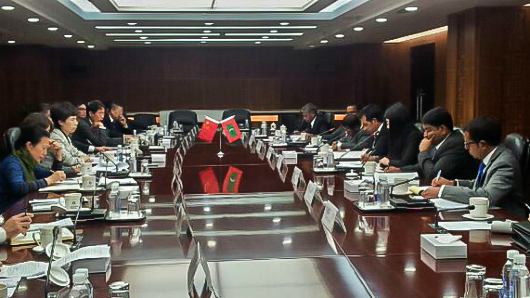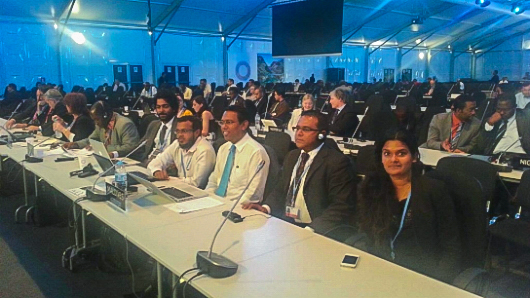The International Commission of Jurists (ICJ) has called this week’s removal of two Supreme Court judges an assault on the independence of the judiciary.
“The Maldivian parliament and executive have effectively decapitated the country’s judiciary and trampled on the fundamental principles of the rule of law and separation of powers in a democratic State,” said Sam Zarifi, ICJ’s Director for Asia and the Pacific.
Zarifi went on to call for the reinstatement of Chief Justice Ahmed Faiz and Justice Muthasim Adnan, labelling their removal by the People’s Majlis “astonishingly arbitrary”.
The two judges were removed following amendments to the Judicature Act passed last week, requiring a reduction of judges on the Supreme Court bench from seven to five.
After the Majlis approved the changes, the Judicial Services Commission (JSC) recommended the following day (December 11) that Faiz and Adnan be removed. The reasons for the decision have yet to be made known to either the public or the Majlis, which nevertheless voted to remove the judges on Sunday (December 14).
Article 154 of the 2008 Constitution says a judge can only be removed if the JSC finds them guilty of gross incompetence or misconduct.
Established in 1952, the ICJ is formed of 60 judges from around the world who utilise their legal expertise to develop and strengthen national and international justice systems.
“The superficial legislative and administrative maneuvers used to get rid of them [the judges] were grossly unfair and in flagrant violation of the Maldivian Constitution, UN and Commonwealth standards on independence of the judiciary, and the obligations of the Maldives under international law,” read today’s ICJ statement.
Both the Civil Court and private lawyers have unsuccessfully attempted to block the judges’ removal, with the Civil Court saying that the “unconstitutional” decision had the potential to “destroy judicial independence” in the Maldives.
While the Supreme Court ordered that the Civil Court hand over any files related to the opposition Maldivian Democratic Party’s complaint, the High Court has told private lawyers that it does not have the jurisdiction to rule on the matter.
Meanwhile, Commonwealth institutions have released a statement saying that judicial independence and the rule of law had been “severely jeopardised” by the decision.
Locally, the Maldivian Democracy Network has called the decision “a travesty in the guise of upholding the Constitution”, while Transparency Maldives also expressed concern:
“The impartiality and independence of the Supreme Court is not solely decided by the number of Supreme Court Justices but rather by the upholding of judicial integrity and principles,” said the anti-corruption NGO.
Immediately following his dismissal, Faiz – previously a stern critic of international commentators on judicial reform – said the move raises doubts over the separation of powers and the continuation of judicial independence in the Maldives.
“Today will be written down as a black day in the constitutional history of the Maldives. I state this is a black day for the constitution. Taking such a vote against the constitution is, I believe, disrespectful to the constitution,” he told local media.
The ruling coalition maintains the amendments – which include the breaking up of the High Court into regional bodies – will strengthen the judiciary and facilitate judicial reform.
Related to this story
Majlis removes Chief Justice Ahmed Faiz, Justice Muthasim Adnan from Supreme Court
Civil Court condemns move to dismiss Chief Justice Faiz and Justice Adnan


